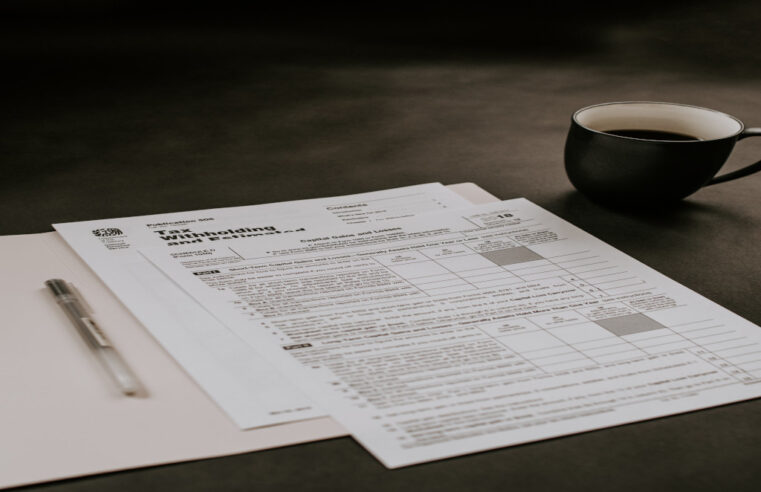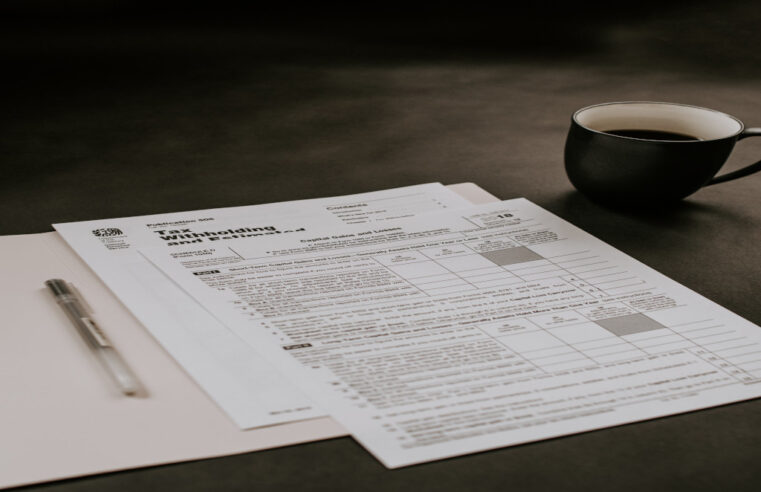Month: October 2021
Online Faculty Development Program on MOOCS AND E-Learning in context of National Education Policy[OCT 18-24, 2021]
DELHI SCHOOL OF PUBLIC POLICY AND GOVERNANCE, INSTITUTION OF EMINENCE , UNIVERSITY OF DELHI in collaboration with NATIONAL LAW UNIVERSITY AND JUDICIAL ACADEMY ASSAM and BHARTIYA SHIKSHAN MANDAL and NATIONAL INSTITUTE OF OPEN SCHOOLING, MINISTRY OF EDUCATION, GOVERNMENT OF INDIA is organising Online Faculty Development Program on MOOCS AND E-Learning in context of National Education Policy[OCT 18-24, 2021] bout the Programme Massive open online courses (MOOCs) are gaining momentum all across the world in the recent times ensuring access to quality education over web. Considering the importance of MOOCs, this Faculty Development Program aims to be a forum for the stakeholders to discuss and deliberate on potential of MOOCs and its optimum utilisation in the field of education policy. It will witness engaging sessions from various experts in stakeholders not only for sensitization but also for its effective implementation. “Uninterrupted Education, Anytime Anywhere”, should be the motto of our education policy BOUT DSPP&G (IOE) The Delhi School of Public Policy and Governance (DSPP&G) at the University of Delhi has been established under the Institute of Eminence (IOE) of the University. BOUT NLUJA, ASSAM NLUJA, Asaam is endowed with state of the art world-class infrastructure. It is a member in the family of the 22 National Law Universities established across the country BOUT BHARTIYA SHIKSHAN MANDAL Bhartiya Shikshan Mandal was founded in the year 1969 is working with the objective of national resurgence in the field of education BOUT NIOS, MINISTRY OF EDUCATION, GOVERNMENT OF INDIA NIOS is the largest Open Schooling system in the world with cumulative enrolment of 4.13 million (during last 5 years) Programme Schedule The Faculty Development Program will be one week programme (seven days) from October 18, 2021 to October 24, 2021 in the afternoon (2 p.m. to 5 p.m.). The Faculty Development Program shall have well-renowned speakers from India and abroad. Vice-chancellors,
Read MoreHow Lawyers Should Market Themselves: An Interview With Joe Pulizzi, Godfather of Content Marketing
I’ve written several columns that featured one of my favorite people in marketing, my friend Joe Pulizzi. His work has been instrumental in my marketing plans. Joe has released a second edition of his bestseller “Content, Inc.,” which is full of practical tactics that any entrepreneur can apply to their business. He graciously agreed to be interviewed about how his recommendations apply to the legal industry. In “Content Inc.” you recommend that content entrepreneurs should create content first, and then once they develop an audience, create products and services that fit their needs. Does this advice hold true for lawyers who want to start their own practice? Should they do this instead of opening it the traditional way? Joe Pulizzi: I honestly believe this is a great strategy for any business in any industry. Now, it does take some courage to launch a business without products …but what I’ve found by building an audience first is that group of people is so much more receptive to buying anything from you. Why? Because they already know, like and trust you. Of course, someone could just start a regular practice and be successful: use word-of-mouth, spot advertising and what not. But I believe the growth prospects of that business are limited. If you want to be regular, do it the old-fashioned way. If you want to change the world, build an audience first in an industry niche where you can be the leading informational expert in the world. Some parts of the law are formulaic, such as what to do if you’re in a car accident. Should we avoid how-to content in these areas because they’ve been covered by so many other practitioners? JP: It all depends on what your content tilt is. That is, what is your hook? Your area of
Read MoreCourts cannot re-modify Laws | Scope limited to Judicial Review only!
Case Analysis: Saregama India Limited v. Next Radio Limited & Ors. Keywords: Judicial Review, Constitutionality of Law, Re-modification of Laws, etc. FACTS There were multiple Petitions which were filed at Madras High Court. These Petitions were filed under Article 226 of the Constitution. These Petitions challenged the validity of Rule 29(4) of The Copyright Rules 2013 (hereinafter referred as Rule). Now the Division Bench of the Madras High Court passed an interim order on 2nd August 2021. The said order was appealed before the Supreme Court of India What did the Division bench directed; which was appealed? To not broadcast the copyrighted work without issuing a prior notice under Rule 29;Information like duration, time slots and the like; including the quantum of Royalty payable maybe furnished within 15 days of the broadcast;Compliance be affected with a modified regime of post facto, as opposed to prior compliance mandated by Rule 29(4).The Statutory mandate of a 24-hour prior notice shall be substituted by a provision for compliance within 15 days after the broadcast; andThe said interim order has limited scope toward the Petitioners approaching this High Court and 2nd-3rd Respondents. ISSUES High Court Whether the Rule 29(4) of the Rule violates Article 19(1)(a) of the Constitution?Whether the Rule 29(4) of the Rule ultra vires Section 31D of the Act? Supreme Court Whether the interim order of the High Court can be sustained? CONTENTIONS OF PARTIES Appellant: The interim order of the High Court has the effect of re-writing Rule 29(4) of the Rules which was framed w.r.t Section 31D and 78(2)(cD) of the Copyright Act 1957 (hereinafter referred as “Act”) There was no challenge to the validity of Section 31D of the Act and still the Rule 29 was reframed keeping Section 31D as the point of perspective. The scope of the
Read MoreNeither NEET-UG 2021 exam be cancelled nor fresh exam be conducted- SC
The Apex Court, while dismissing a petition which sought for cancellation of NEET-UG 2021 exam and fresh exams for NEET-UG, made an observation that due to the reported instances of impersonation and paper leakage, lakhs of students cannot be made to suffer. The NEET-UG 2021 had been conducted on September 12, 2021 and widespread allegations had been raised for adoption of malpractices and paper leakage. The counsel on behalf of petitioner contended that NEET-UG 2021 had been irreversibly vitiated due to the involvement of unfair means, malpractices through gadgets, devices, and facilitation through illegal and unfair means. Moreover, the counsel submitted that already five FIRs had been registered across the country over the allegations of paper leakage, malpractices and impersonation in NEET-UG exam, including the CBI. The counsel had also sought for a report from National Testing Agency (NTA) as the NEET paper had been leaked as soon as the exam had begun and the solutions to them had been circulated on Whatsapp. The bench, from the outset, expressed its disinclination towards the petition. It further questioned the petitioner for filing such a writ petition that could be detriment to the lakhs of student who’ve appeared for the NEET-UG exam. The bench agreed that allegations had been raised but merely on account of 5 FIRs, it did not agree to affect the exam that had been conducted nationally and appeared by more than 7.5 lakh students. The bench straightaway dismissed the writ petition and criticized the petitioner for being “adventurous.” Initially, the bench proposed to dismiss the petition with Rs. 5 lakhs costs, however, on the request of counsel, omitted the costs. The post Neither NEET-UG 2021 exam be cancelled nor fresh exam be conducted- SC appeared first on LexForti Legal News & Journal. Did you miss our previous article…
Read MoreCentre for Corporate and Competition Law (Symbiosis Law School, Hyderabad) is hosting two National Events you might be interested in!
bout the Institute The idea of ‘Symbiosis’ is nurtured by Dr. S. B. Mujumdar on the principles of Vedic thought ‘Vasudhaiva Kutumbakam’ which means ‘World as One Family’. Symbiosis Law School (SLS) Hyderabad was established in 2014 inheriting splendid novelty, dynamism and excellence in the education of Symbiosis International University, Pune. bout the Centre Established in 2018, the Centre for Corporate and Competition Law (CCCL) is a student-run centre aiming to provide a platform for students of the institute to explore and learn more about the nuances of Corporate and Competition Law, and to prepare them for the corporate world. To advance our agenda, CCCL has been successful in conducting multiple landmark events in the history of our institute, which has carved a niche corner for our centre within the legal fraternity. Amongst others, CCCL conducted our flagship event, the first-ever National Corporate Restructuring Competition in India in 2019. We have also spread our roots into banking law by conducting a three-day value-added course on Insolvency and Bankruptcy Code. Over the past two years, we have invited eminent personalities like Mr. Dhanendra Kumar, first Chairperson of the CCI and Dr. K. D. Singh, Joint Secretary for Law at CCI conduct webinars on relevant topics. bout The Events There will be a total of two event that will be hosted by the Centre. a. A One-Day National E-Conference b. A National Discussion bout The E-Conference In the modern economy, the corporate sector has been assigned the leadership for ensuring the growth process. To carry forward the growth, the companies in India require a conducive legal environment with appropriate corporate and commercial laws. The developed countries and the transnational economic institutions like WTO need to have an ease of business and trade to work in. By taking giant steps, India has moved into
Read MoreHow to Wear Color: The ‘Confront Your Closet’ Challenge, Step 2
Black and white. Black and gray. Maybe navy and cream. Women lawyers often have a hard time stepping beyond traditional conservative colors when choosing what to wear. But if you’re tired of the way those colors make you feel and ready to change things up a bit, you’ll appreciate Melanie Lippman’s latest video on how to wear color appropriately. Step Two of the Confront Your Closet Challenge Is All About Color In the first “Confront Your Closet” Challenge we focused on why the idea of getting dressed to go back to the office or meetings is so hard. So many emotions come up — it’s as if we’ve forgotten how to get dressed. For the first homework assignment, I asked you to write down your non-negotiables. What are you no longer willing to put up with when it comes to your closet? If you didn’t complete step one, be sure to watch the first video here. Now, let’s talk about adding color to your closet. Wait, What Is the Confront Your Closet Challenge? The “Confront Your Closet” Challenge is designed to help you get clarity and control over what’s going on in your closet so that you feel empowered by the way you’re getting dressed every day. Every video will give you an action item to help you change your mindset on getting dressed or provide a tip you can take into your closet. This is not about spending big money; the goal is to help you learn how to use your wardrobe in a completely different way. Finding your style, getting dressed without stress, and wearing clothes that flatter you are skills you can learn easily. Learning How to Wear Color Wearing color can be a little challenging for female lawyers because they don’t ever want to look inappropriate.
Read MoreMaritime Laws in India
Historical Perspective India has a long history of marine trading both within and outside of its oceanic borders. Various historical documents claim that many merchants and traders travelled to India in ancient times to exchange products and services, and vice versa. In this field, numerous laws, rules, and regulations have been enacted. Post-independence, the Indian government gave careful consideration to enacting several rules and legislation to ensure safe and efficient maritime trade. Various laws implemented by the Colonial Government such as the Inland Steam Vessels Act, 1917, the Coasting Vessels Act, 1838, the Indian Ports Act, 1908, the Indian Merchant Shipping Act, 1923, the Merchant Seamen (Litigation) Act, 1946, the Control of Shipping Act, 1947, the Merchant Shipping Laws (Extension to the Acceding States and Amendment) Act, 1949, etc. All the above laws and statutes were not according to the prevailing Indian System. As a result, post-Independence, the government enacted new rules and ordinances to improve existing coastal trading practices. In addition to the above-mentioned Acts, British legislators enacted several laws and statutes governing various aspects of the Indian shipping sector between 1823 and 1940, including salvage, certification of seafarers, ship-liability, owner’s safety, and line conventions, and others. The jurisdiction for trial and adjudication of cases related to Shipping and Admiralty Acts in India was vested in the High Courts at Madras, Bombay, and Calcutta. Even during the post-independence period in India, the jurisdiction of Admiralty Courts of India was still with the colonial powers. In the case of M. V. Elisabeth v. Harwan Investment and Trading Pvt Ltd, it was held that the High Courts of India hold a superior status than any other Court of law for deciding matters within India. The Indian High Courts were said to have unrestricted jurisdiction and that their decisions were final and
Read MoreInsurance claim be rightfully rejected if vehicle being used without valid registration- SC
The Apex Court, while setting aside NCDRC order, made an observation that rejection of insurance claim would be valid if the insured vehicle is found being used or driven without a valid registration. The bench made this observation as unavailability of valid registration would constitute fundamental breach of terms and conditions of the contract of insurance. In the instant case, the policy-holder had purchased a vehicle with temporary registration. Even though the registration had expired, the policy-holder travelled outside his residence and parked his vehicle at a premises from where later the vehicle had been stolen. Due to the incident, the policy-holder had claimed insurance but the same had been rejected on the ground that vehicle had not been registered. The policy-holder then approached DCDRC and claimed relief against insurer. However, the complaint had been dismissed. On an appeal before SCDRC, it had been held that insurance claim could not be repudiated on petty, technical and frivolous grounds. The forum blamed the insurer for escaping from its liability to indemnify the policy-holder/complainant for the loss of his vehicle. The revision petition preferred by the insurance company had also been rejected. Before the Supreme Court, the insurer contended that since the vehicle in question did not have permanent registration, which amounted to fundamental breach of policy, it had been entitled to reject the claim of policy-holder/respondent. The counsel on behalf of complainant/respondent argued that the compensation had been sought on ground of accident and not theft, thus the policy could not be applied in the case of complainant. The bench observed that in case of an insurable incident which bears the tendency of occurrence of liability, there should not be fundamental breach of terms and conditions provided in the contract of insurance. The bench placed reliance on the case of Narinder
Read More
![Online Faculty Development Program on MOOCS AND E-Learning in context of National Education Policy[OCT 18-24, 2021]](https://www.itcse.org/wp-content/uploads/2021/10/Legal-advising-6-761x492.jpg)











